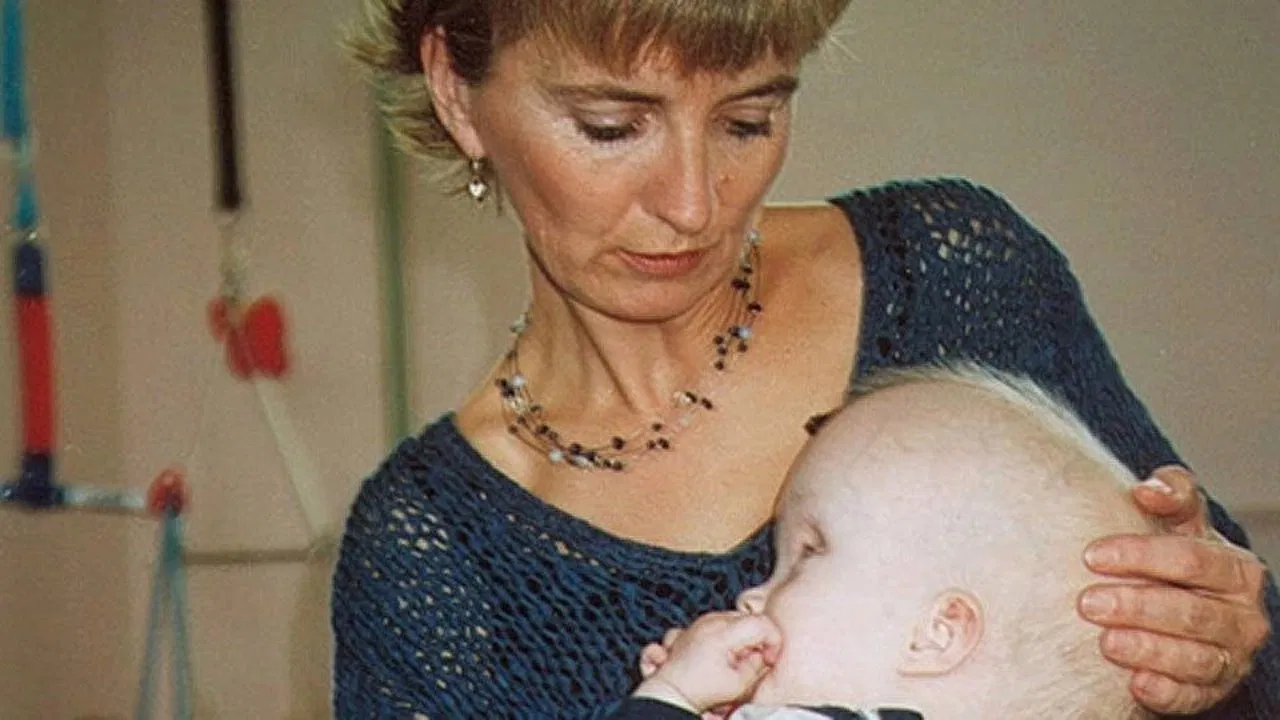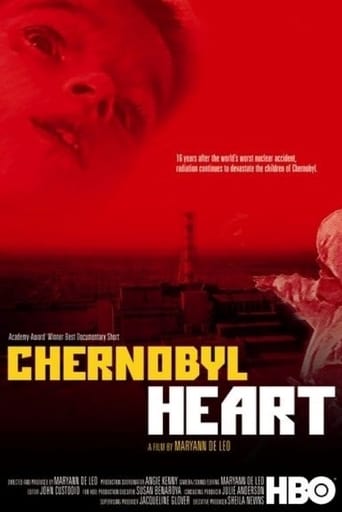Livestonth
I am only giving this movie a 1 for the great cast, though I can't imagine what any of them were thinking. This movie was horrible
Calum Hutton
It's a good bad... and worth a popcorn matinée. While it's easy to lament what could have been...
Marva-nova
Amazing worth wacthing. So good. Biased but well made with many good points.
cav427
Chernobyl was a tragic event, caused by human error, and a very poor design (The reactors had no containment buildings, just 1 major example!). Not mentioned in the movie, how much pollution is really there. There are many more pollutants than just radioactive materials, all much more mutanogenic than the radioactive ones. Moreover, the narrator just cites the nuclear disaster as the cause. This is at a time when nuclear power is necessary to our economy.The birth defects shown are horrific and tragic, and all very heart wrenching, but truly how many children are effected? There are 1,000's of birth defects in the US and other countries, all can be attributed to causes other than nuclear radiation. Ever hear of the "March of Dimes"?As for the scene when she holds up the Geiger counter, and says how scarred she is, either by a lie or incompetence, she is using it inaccurately. The selector switch is on Total Count, not on a count by minute (CPM rate), as it should be. Is the total count on over 1 minute, five minutes, several hours, several days? The "clicks" registered do not match up with the count displayed either. It appears to me that it is at maybe a couple of hundred counts per minute, not 13,000 counts every single minute (The LED would look steady at that rate!). Yes there is radiation levels higher than average world background, but there are beaches in France and India, Ramsar Iran, and other places that have very high background counts, and there are relatively few incidences of cancer and birth defects. Are children with birth defects a good charity? Of course! But one should not lie, by omission or ignorance about it to collect funds.
xoleyton
Chernobyl Heart is a reflection of the growing dis-ease spreading like a cancer around planet earth....we think that because we don't know about the acute suffering of children,and others, thousands of miles away, or are not aware of the severe poisoning of a portion of Mother Earth's body, that it does not directly affect us. But like any cancer that begins to grow in our body, we are usually not aware of it's presence until it reaches a certain critical point...then we begin to FEEL it directly and can no longer deny its existence. What will it take for us to collectively wake up from our self-absorbed coma that refuses to understand anything at all until it's too late. We can donate our money or time in helping victims of disasters, and this is always needed, but why is this never enough? Have we not noticed that throwing money at calamitous situations never seems to solve the systemic problem of greed and corruption in the consciousness of MEN basically in charge of running everything on this planet? Maybe we all need to awaken our OWN Chernobyl Heart, first............before it is too late.
reviewpam
I saw this film on HBO this morning and was profoundly affected by it. The helpless and abandon children so lonely and suffering brought me to tears. You want to touch them in some way to ease their pain. I, too, was moved to realize just how blessed I really am. It also frightened me when the filmmaker commented that Chernobyl is the next Chernobyl. That the structure is deteriorating and radio active material that remains within it will soon pose even a greater potential for disaster than the first deadly episode. Is there nothing that can be done to prevent this impending catastrophe? I would greatly appreciate any information that an expert might have regarding this extremely grave situation
mary-131
I just saw this for the second time and it is a truly haunting film. Only about 45 minutes long, I have watched it on HBO once and then recorded it to show to my husband later. It filled me with such sadness and shock that I just had to share the experience. I had no idea that the effects of the nuclear disaster in Chernobyl in 1986 were so devastating and so long lasting. It seems to be that this whole situation and condition of this area is kept rather under wraps and silent. If everybody knew about these people and their lives now, I would hope more could and would be done to help. If you want to be informed, touched and moved very deeply, please watch this documentary.

